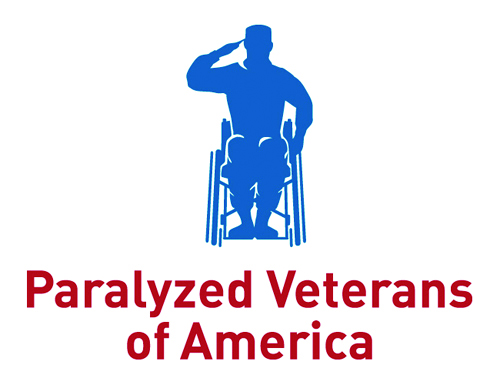Multiple Sclerosis Centers of Excellence
Paralyzed Veterans of America: A Champion for Veterans with Multiple Sclerosis
Sherman Gillums, Jr. (Paralyzed Veterans of America)
Since World War II, Veterans who live with paralysis have seen incremental progress in terms of health, wellness, independence, and overall quality of life due to the Paralyzed Veterans of America’s (PVA) role in raising awareness and providing meaningful services. A major part of the PVA mission includes advocating for timely benefits, quality health care, civil rights, and equal opportunities for Veterans with MS.
Benefits
Every year, PVA’s national service officers encounter numerous Veterans with MS diagnoses who have no idea they are entitled to VA disability compensation. Whether a Veteran develops the condition 1 month or 20 years after leaving service, a Veteran may be eligible if service treatment records or post-service health records show a possible symptom of MS can be retrospectively identified within the 7-year period after active service, prior to the confirmed diagnosis. Documented blurry vision or weakness in the arms and legs thought to be anything but MS could be the key to receiving VA monetary benefits, as well as ancillary benefits. For example, a Veteran who loses the ability to walk may receive a grant to make a home and vehicle accessible. But it starts with having an expert in the VA claims development review all military documents and health records in order to identify a symptom within the 7-year window and get a medical opinion from a physician on its likely association with MS.
Health Care
For over 30 years, PVA has closely monitored health care in VA through annual site visits at every VA Spinal Cord Injury and Disorders (SCI/D) Center across the country and Puerto Rico. A site team consisting of registered nurses, clinicians, architects, and paralyzed Veterans assessing quality of care against the standards outlined in VA directives. These SCI/D Centers became the benchmarks for rehabilitation and acute care for Veterans who suffered trauma to the spinal cord as well as other spinal cord dysfunctions such as tumors and stenoses. Once it had become recognized that MS can often mirror the effects of spinal cord injury (loss of use of lower extremities, bowel and bladder dysfunction, chronic pain), PVA and VA partnered to implement policies that opened access to SCI/D care for Veterans with MS with affected spinal cords.
Civil Rights
While many Veteran service organizations derive their purpose from advocating for disabled Veterans, PVA is distinguished by being both an advocate for Veterans as well as the disabled community. MS respects no demographic boundaries so the extent to which the organization makes society more accessible for Veterans with mobility impairment also benefits non-Veterans with disabilities. The organization’s professional team of architects promotes barrier-free design in public, private, and government construction, which promotes independence and encourages greater participation in society. Consistent with that effort is our support for the United Nations Convention on the Rights of Persons with Disabilities. This treaty will benefit the 650 million people around the world living with disabilities, including 2.3 million with MS.
Equal Opportunity
PVA launched its PAVE Program in order to help disabled and hard-to-place Veterans become job ready and achieve economic self-sufficiency. PAVE, which stands for Paving Access for Veterans Employment, does exactly that by rolling over barriers to employment such as low self-expectation, employer stigmas, health issues, and lack of access to VA benefits. The program’s certified vocational counselors and employment analysts work with benefits experts and clinical advocates to holistically address a wide range of issues that prevent Veterans with disabling conditions from competing in the job market, and they also educate employers.
Making A Real Difference
MS impacts military Veterans at a high incidence rate according to recent research studies. For the 22,000 Veterans with MS who receive health care in the VA, the difference between living with the disease and living despite the disease begins with programs and services that empower and educate. PVA continues to lead on both fronts. For Veterans, family members, and caregivers who need assistance or want to learn more, go to www.PVA.org or call the PVA national office in Washington DC at 800-424-8200. You can also connect with PVA on social media at www.facebook.com/ParalyzedVeterans.
Disclaimer: Links are provided as a convenience and for informational purposes only. They do not constitute an endorsement or an approval by MSCoE of any of the products, services, or opinions of the organization. MSCoE bears no responsibility for the accuracy, legality, or content of the external site or for that of subsequent links. Contact the external site for answers to questions regarding its content.



















